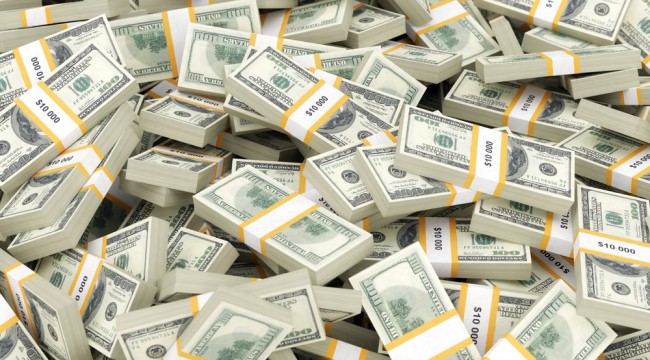The $1 Trillion Exodus
LONDON — A trillion dollars is a lot of money.
It’s roughly equivalent to a third of what Britain’s economy is expected to produce this year.
It’s also the amount investors have pulled out of emerging markets in the last 13 months, according to today’s FT.
Nowhere is the trend more typified than China, which seems to have dominated the narrative over the last couple of weeks.
“Money’s getting out of China,” Jim Rickards told Strategic Intelligence members in an exclusive live briefing call last week.
Where’s it going? Overseas property.
The Smart Money’s Heading For the Exits
Here in London, One Hyde Park in Knightsbridge has become synonymous with the idea of rich tycoons and oligarchs parking their wealth, with little intention of actually living in the flats they buy.
A lot of the money pushing up property prices in the world’s major cities is coming from China, Jim says.
“Talk to the brokers, talk to reporters, talk to people on the ground, they’ll tell you these are Chinese buyers. Well, that’s the smart money in China getting out.”
Why are they getting out?
Well, this summer’s Chinese stock market wreck could be a factor, although the outflows started way before that.
Another factor is the corruption crackdown instituted by China’s president Xi Jinping.
A third is that, quite simply, there are more attractive options. China faces serious economic troubles. The US, by contrast, is actively talking up the prospect of raising the return on money by hiking interest rates.
Says Jim:
If you’re a global investor and you’re getting negative interest rates in Europe and you’re getting declining interest rates and declining currencies around the world, and you look at the United States and you see the U.S. has a strong dollar and the possibility of interest rate increases, then you wanna put your money in the United States. It’s that simple, because you’re gonna get, or at least you expect to get, a return, either in a stronger currency or higher interest rates or both.
In other words, there’s an awful lot riding on next month’s Federal Reserve decision. Its implications are global.
A dilemma for the Fed
Raise rates and the Fed risks exacerbating the pain being felt in Asia and elsewhere.
However, there’s only so long you can talk about a hike without doing it before your credibility is seriously strained.
“If the Fed had raised rates when they had the chance, which was 2010, 2011, they could cut them today,” says Jim.Of course, central bankers have already strained their credibility by pursuing emergency policies for more than half a decade.
But, of course, they didn’t do that. They missed an entire interest rate cycle. They stayed at zero the whole time. Bernanke, from 2009 to 2014, when he was in, made the same mistake that Greenspan made from 2002 to 2006, which is rates are too low for too long, all you do is create asset bubbles, and they’ve done it again, they’ve created asset bubbles in stocks and housing and those are gonna pop in due course.
Don’t expect clarity from the Fed’s latest policy meeting minutes.
Until next time,
Ben Traynor
for The Daily Reckoning, U.K.
P.S. Be sure to sign up for The Daily Reckoning — a free and entertaining look at the world of finance and politics. The articles you find here on our website are only a snippet of what you receive in The Daily Reckoning email edition. Click here now to sign up for FREE to see what you’re missing.



Comments: